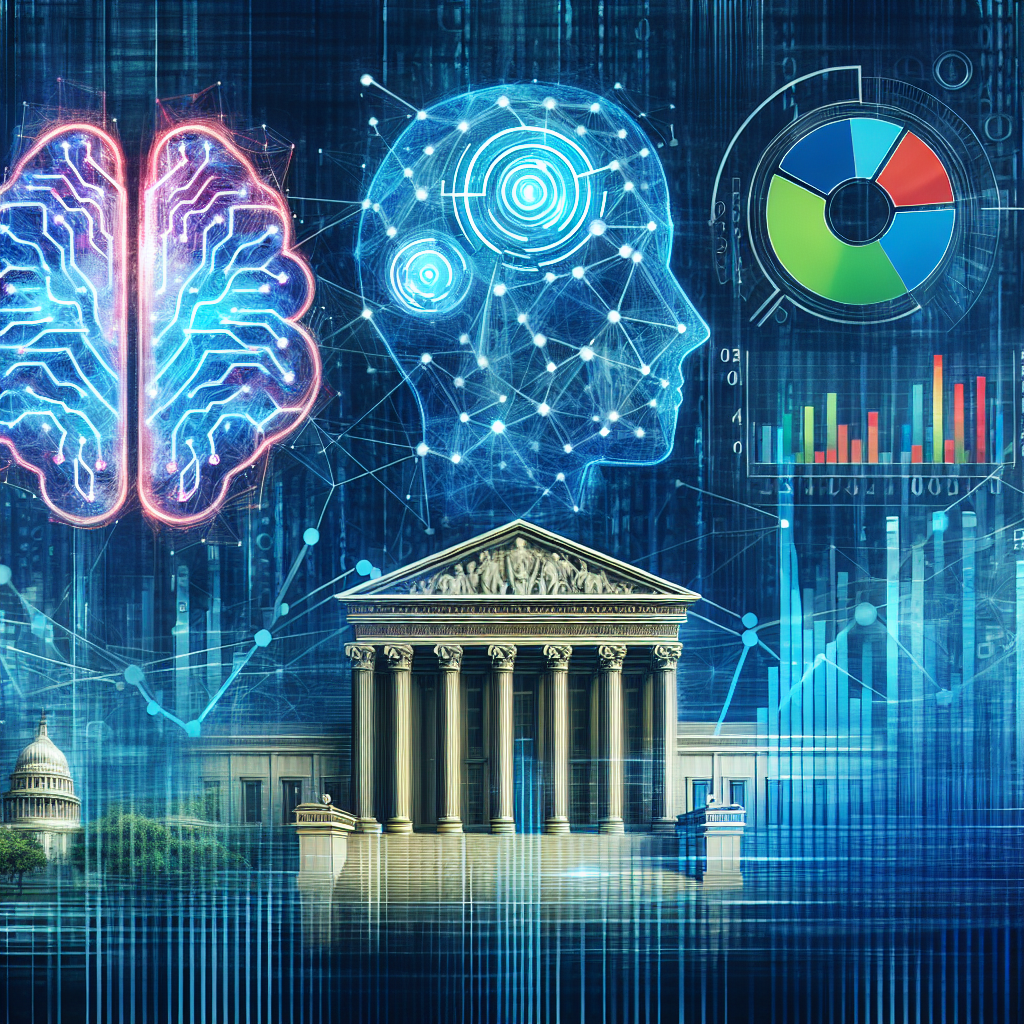Government agencies are constantly seeking ways to improve their services and operations, and one promising avenue for innovation is the use of artificial intelligence (AI) for predictive modeling. By harnessing the power of AI, government agencies can better anticipate and respond to a wide range of challenges, from traffic congestion to public health crises. In this article, we will explore the potential of AI for predictive modeling in government, including its benefits, challenges, and future implications.
Benefits of AI for Predictive Modeling in Government
1. Improved Decision Making: AI algorithms can analyze vast amounts of data to identify patterns and trends that humans may not be able to see. This can help government agencies make more informed decisions, whether it’s allocating resources during a natural disaster or predicting the likelihood of a crime occurring in a certain area.
2. Enhanced Efficiency: By automating data analysis and prediction tasks, AI can help government agencies streamline their operations and reduce manual workloads. This can lead to cost savings and improved service delivery for citizens.
3. Better Resource Allocation: Predictive modeling can help government agencies allocate resources more effectively by identifying areas of need and predicting future demand. For example, AI can help healthcare agencies anticipate patient admissions and plan staffing levels accordingly.
4. Early Warning Systems: AI-powered predictive models can serve as early warning systems for a wide range of events, such as disease outbreaks, traffic accidents, or cybersecurity threats. By alerting government agencies to potential risks in advance, AI can help them take proactive measures to mitigate these risks.
Challenges of AI for Predictive Modeling in Government
1. Data Quality: The success of AI models depends on the quality of the data used to train them. Government agencies may face challenges in obtaining high-quality, clean, and relevant data from disparate sources. Poor data quality can lead to inaccurate predictions and unreliable results.
2. Privacy Concerns: Government agencies must navigate the delicate balance between using AI for predictive modeling and protecting citizens’ privacy. There are concerns about how AI algorithms handle sensitive personal data and the potential for bias in predictive models.
3. Interpretability: AI models are often complex and black-box in nature, making it difficult for government agencies to understand how predictions are generated. This lack of interpretability can hinder trust in AI systems and make it challenging to explain decisions to stakeholders.
4. Implementation and Adoption: Government agencies may face barriers to implementing AI for predictive modeling, such as limited technical expertise, budget constraints, and organizational resistance to change. Overcoming these challenges requires a concerted effort to build capacity, secure funding, and foster a culture of innovation.
Future Implications of AI for Predictive Modeling in Government
As AI technology continues to advance, the potential for predictive modeling in government will only grow. Some future implications of AI for predictive modeling in government include:
1. Real-Time Decision Making: AI-powered predictive models can enable government agencies to make real-time decisions based on up-to-date data and trends. This can lead to faster responses to emergencies, improved resource allocation, and more efficient service delivery.
2. Personalized Services: AI can help government agencies tailor services to individual citizens’ needs by predicting their preferences, behavior, and risks. For example, AI can be used to personalize healthcare interventions, social services, and educational programs.
3. Enhanced Public Safety: AI can help government agencies enhance public safety by predicting and preventing crimes, accidents, and other threats. By analyzing historical data and current trends, AI can identify high-risk areas and individuals, enabling proactive interventions.
4. Policy Development: AI can inform evidence-based policymaking by analyzing data on social, economic, and environmental trends. Predictive modeling can help government agencies forecast the impact of policy decisions and evaluate different scenarios before implementation.
FAQs
Q: How can government agencies ensure the ethical use of AI for predictive modeling?
A: Government agencies can ensure the ethical use of AI by following best practices, such as transparency, accountability, fairness, and privacy protection. They should also engage with stakeholders, including citizens, experts, and policymakers, to address ethical concerns and build trust in AI systems.
Q: What role can citizens play in the development and deployment of AI for predictive modeling in government?
A: Citizens can play a crucial role in shaping the development and deployment of AI by providing feedback, participating in consultations, and advocating for ethical and responsible AI practices. Government agencies should engage with citizens to ensure that AI systems benefit society as a whole.
Q: How can government agencies address bias and discrimination in AI models for predictive modeling?
A: Government agencies can address bias and discrimination in AI models by ensuring diverse representation in data collection, training, and validation processes. They should also use tools and techniques, such as fairness metrics and bias detection algorithms, to mitigate bias and promote fairness in predictive modeling.
Q: What are some examples of successful AI applications for predictive modeling in government?
A: Some examples of successful AI applications for predictive modeling in government include predictive policing, traffic congestion prediction, disease outbreak detection, and demand forecasting for public services. These applications have demonstrated the potential of AI to improve decision-making, enhance efficiency, and enhance public safety.
In conclusion, AI has the potential to revolutionize predictive modeling in government by improving decision-making, enhancing efficiency, and addressing a wide range of challenges. While there are challenges to overcome, such as data quality, privacy concerns, and interpretability, the benefits of AI for predictive modeling are substantial. By embracing AI technology and investing in capacity building, government agencies can harness the power of AI to better serve citizens and build a more resilient and responsive government.

